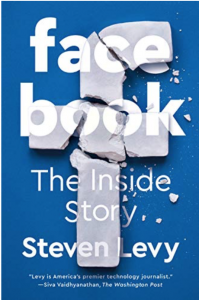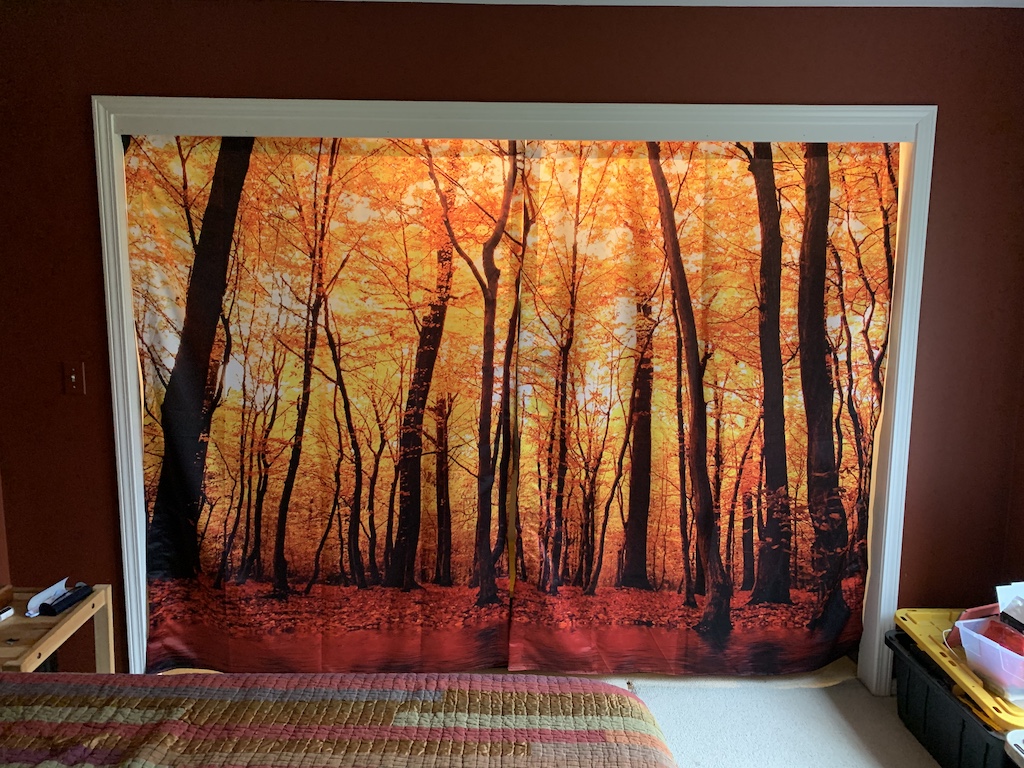Back before the viral shit hit the fan, I decided to replace the really old, nasty carpet in my office and bedroom. That happened earlier this week and I finally got my office back in order. The space feels different now, not just because of the new carpet, but because I’m spending so much time in these rooms. And will spend much more before this is done. I made this little 4-minute video for a friend.
David Brazeal
A plague is upon us and I have hunkered down (a word one gets to use so infrequently). I’ve been using the time at home to call/text old friends, like David Brazeal. David almost certainly the most amusing person I know. Perhaps droll would be a better word for David. From just one short iMessage exchange:
The biggest hardship right now is that all my usual hypochondria, normally spread out over my entire body, is not centered in my chest and lung area.
This has also been good for me to discover which businesses still have my email address from a purchase I made 7 years ago. I am fully informed of the COVID-19 response plans of every business with which I have interacted since about 2010.
I have seriously neglected my hunting and gathering skills for 50 years.
David’s bon mots have shown up in my post often enough to deserve their own tag.
Green Button
 Imagine having a couple of buttons on your desk. Let’s say, red and green. And everytime you walked by you could press the red button for a negative/angry/fearful thought… or the green one for a positive/peaceful/uplifting thought. Wouldn’t last long, just a few seconds or a minute or two.
Imagine having a couple of buttons on your desk. Let’s say, red and green. And everytime you walked by you could press the red button for a negative/angry/fearful thought… or the green one for a positive/peaceful/uplifting thought. Wouldn’t last long, just a few seconds or a minute or two.
Why would you ever push the red button? You wouldn’t, not if you thought about it for a spit second. You’d wear that fucking green button out. But we find ourselves soaking in negative thoughts and — if we’re lucky — have a moment of awareness.
“Whoa. I must have hit the red button. A couple of times.”
All of which goes to explain why people report constantly hearing me muttering, “Green button, green button, green button.”
My friend Kent reminds us the red button state is most people’s default. (Always going for green.) Buddha says “life is the red button state’. Awareness would be the inbetween.
Closet curtains
So sane, so joyous

“The playfulness and joy of a dog, its unconditional love and readiness to celebrate life at any moment, often contrast sharply with the inner state of the dog’s owner — depressed, anxious, burdened by problems, lost in thought, not present in the only place and only time there is: Here and Now. One wonders: living with this person, how does the dog manage to remain so sane, so joyous?”
— Eckhart Tolle
Online grocery shopping
Online grocery shopping has been around for a while but I haven’t paid much attention. I have lots of time and tend to impulse-shop. But as I look for ways to avoid unnecessary exposure to crowds, I decided to give it a try.
Gerbes Supermarket (a Kroger brand) is about ten minutes from my house. You can shop via desktop browser or from a mobile app and they’ll deliver ($10) or you can schedule a time to pick up your order ($5). Looks like they’ll ship an order but I’m not sure that’s available locally.
I downloaded the iOS app and started shopping. Not the greatest UI I’ve ever seen but not bad. I found it a little confusing when updating my order but that might have been my lack of familiarity. I chose a pick-up window and they texted me reminders as well as notifications when one of the products I selected was out of stock.
 Our local store has three pick-up “stalls” (parking slots) with a phone number to let them know you’re waiting. A nice lady came out with my groceries and a list showing an item that was unavailable as well as a substitution (If I didn’t like it they’d take it back and adjust my credit card charge).
Our local store has three pick-up “stalls” (parking slots) with a phone number to let them know you’re waiting. A nice lady came out with my groceries and a list showing an item that was unavailable as well as a substitution (If I didn’t like it they’d take it back and adjust my credit card charge).
This seemed like a pretty good deal for five bucks. There will be times when I want to roam the aisles but for now, I’ll avoid the masses.
Facebook: The Inside Story
 I’m at a loss for what to say about Steven Levy’s book, Facebook: The Inside Story. At 500 pages it’s a deep dive into the history of Facebook (the startup and all that’s happened since). The excerpts below are just a few of the things that caught my eye. It would be a mistake to judge the book (or Mark Zuckerberg) based on the passages I underlined.
I’m at a loss for what to say about Steven Levy’s book, Facebook: The Inside Story. At 500 pages it’s a deep dive into the history of Facebook (the startup and all that’s happened since). The excerpts below are just a few of the things that caught my eye. It would be a mistake to judge the book (or Mark Zuckerberg) based on the passages I underlined.
Soley by analyzing Likes, they successfully determined whether someone was straight or gay 88 percent of the time. In nineteen out of twenty cases, they could figure out whether one was white or African American. And they were 85 percent correct in guessing one’s political party. Even by clicking innocuous subjects, people were stripping themselves naked. […] In subsequent months,Kosinski and Stillwell would improve their prediction methods and publish a paper that claimed that using Likes alone, a researcher could know someone better than the people who worked with, grew up with, or even married that person. “Computer models need 10, 70, 150, and 300 Likes, respectively, to outperform an average work colleague, cohabitant or friend, family member, and spouse.”
A 2012 study found that Facebook was mentioned in a third of divorces.
It was a natural evolution to put (content moderators) in factories. They became the equivalent of digital janitors, cleaning up the News Feed like the shadow workforce that comes at night and sweeps the floors when the truly valued employees are home sleeping. Not a nice picture. And this kind of cleaning could be harrowing, with daily exposure to rapes, illegal surgery, and endless images of genitals.
Between January and March 2019, (Facebook) blocked 2 billion attempts to open fake accounts — almost as many as actual users on the system. […] The company concedes that around 5 percent of active accounts are fake. That’s well over 100 million.
It’s left to the 15,000 or so content moderators to actually determine what stuff crosses the line, forty seconds at a time. In Phoenix (site of one of the moderator “factories”) I asked the moderators I was interviewing whether they felt that artificial intelligence could ever do their jobs. The room burst out in laughter.
A computer-science teacher at one of the big AI schools told me that Facebook used to be the top employment choice. Now he guesses that about 30 percent of his students won’t consider it, for moral reasons.
“We’ve actually built an AI that’s more powerful than the human mind and we hid it from all of society by calling it something else,” Harris says. “By calling it the Facebook News Feed, no one noticed that we’d actually built an AI that’s completely run loose and out of control.” Harris says that using the News Feed is like fighting an unbeatable computer chess player—it knows your weaknesses and beats you every time.” — Tristan Harris (former Google interface engineer)
A few take-aways:
- Facebook might be the most powerful (influential) organization in the world. And therefore — potentially — the most dangerous.
- Everyone on the planet is affected by what Facebook does (or doesn’t do). Even those of us without accounts.
- Mark Zuckerberg is brilliant and has surrounded himself with other brilliant people. He seems to believe he is always the smartest person in the room.
- Zuckerberg is on a mission to save/change the world. Combined with the above, this makes him very dangerous.
- People who use Facebook (and those of us who do not) have no idea the extent to which we are influenced by the people running the platform.
- Users will never —voluntarily — stop using Facebook.
The book has left me a bit shaken. I always considered religion — some religion — the greatest danger to humanity. Facebook seems a greater threat.
“An existential threat to humanity”
The following quote is from Steven Levy’s new book, Facebook: The Inside Story.
“We’ve actually built an AI that’s more powerful than the human mind and we hid it from all of society by calling it something else,” Harris says. “By calling it the Facebook News Feed, no one noticed that we’d actually built an AI that’s completely run loose and out of control.” Harris says that using the News Feed is like fighting an unbeatable computer chess player—it knows your weaknesses and beats you every time.”
— Tristan Harris (former Google interface engineer)


